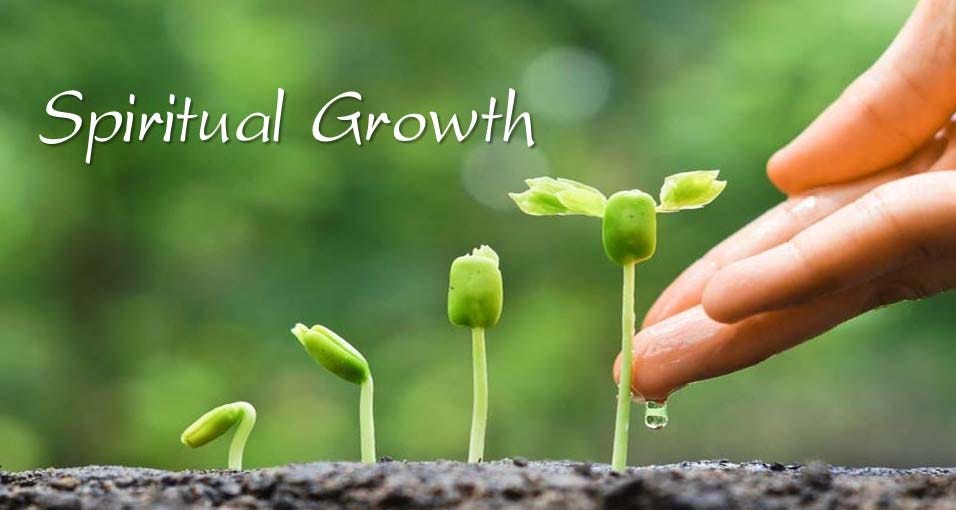The journey of spiritual growth is intrinsically linked to the pursuit of understanding one’s place in the cosmos and one’s relationship with the divine. In the Bahá’í Faith, spirituality is not merely an abstract concept; rather, it encapsulates a multifaceted journey toward aligning one’s actions, thoughts, and purpose with the divine will. This article elucidates the profound significance of religion as an indispensable instrument for achieving spiritual growth, accentuating how it invites a transformative shift in perspective.
To commence with, it is essential to recognize that religion serves as a foundational framework that structures our understanding of existence. The Bahá’í teachings posit that religion is a call to action, a guiding light in the tumultuous seas of human experience. It fosters moral development, engenders communal harmony, and cultivates a deeper awareness of our interconnectedness. Each religious tradition, including that of the Bahá’í Faith, provides a repository of wisdom garnered from the collective experiences of humanity, guiding individuals toward realization and enlightenment.
Examining the rationale that necessitates religion for spiritual growth requires a deep dive into the nature of human beings. The Bahá’í perspective asserts that humans are inherently endowed with divine attributes. These attributes—such as compassion, justice, and unity—await refinement and expression. Religion, therefore, offers a structured approach to nurturing these qualities. By engaging with spiritual teachings, individuals accede to a higher moral framework that challenges them to transcend their baser instincts and align their actions with ethical imperatives.
Furthermore, the role of rituals and communal practices in the Bahá’í Faith exemplifies how religion can catalyze spiritual development. Rituals, often misconstrued as mere ceremonial practices, serve a dual purpose: they reinforce a sense of community and facilitate personal introspection. For instance, the observance of the Nineteen Day Fast not only fosters self-discipline but also cultivates an acute awareness of the plight of others. Through collective worship and shared experiences, followers establish a profound sense of belonging, amplifying their spiritual consciousness.
Yet, the holistic approach to spiritual growth is incomplete without the foundational tenet of service to humanity. The Bahá’í teachings emphasize that true spiritual advancement is inconceivable without active participation in the betterment of society. This paradigm shift elevates individual spirituality from a solitary endeavor to a communal responsibility. By engaging in acts of service, individuals experience tangible connections with others, thereby manifesting the principles of unity and love that underpin Bahá’í doctrine. This duality reinforces the notion that self-improvement is inherently linked with collective enhancement.
Moreover, one of the most profound assertions of the Bahá’í Faith is the integration of science and religion. In an epoch characterized by rapid scientific advancements and burgeoning skepticism toward traditional beliefs, the Bahá’í teachings provide a compelling perspective: knowledge and spirituality are not mutually exclusive but rather symbiotic. This paradigm invites a reevaluation of preconceived notions about truth, urging adherents to embrace a more nuanced understanding of spirituality that harmonizes empirical inquiry with spiritual insights.
Transitioning to the psychological dimensions of spiritual growth, it is salient to acknowledge that religion offers a psychological anchor during life’s vicissitudes. The Bahá’í Faith teaches that faith is not a destination but rather a continuous voyage of discovery. When confronted with adversity, individuals often seek solace in their spiritual beliefs. This reliance fortifies resilience, instilling hope in the face of despair. The transformative power of faith reshapes one’s cognitive frameworks, enabling one to navigate challenges with grace and equanimity.
Additionally, the Bahá’í teachings advocate for the importance of personal reflection and meditation. These practices engender a sacred space where individuals can commune with the divine, fostering a deeper understanding of self and purpose. Meditation, articulated within Bahá’í literature, transcends mere relaxation techniques; it acts as a conduit for divine inspiration, allowing practitioners to access the profound truths that lie beneath the surface of everyday existence. Such introspective practices augment one’s spiritual evolution, revealing the sublime dimensions of consciousness.
As one delves deeper into the intersection of religion and spiritual growth, it becomes apparent that the institution of the family plays a pivotal role. The Bahá’í teachings advocate for the sanctity of family life as a microcosm of broader societal structures. Nurturing spiritual principles within the familial unit cultivates an environment conducive to spiritual flourishing. Parents are enjoined to impart ethical values and engage in open dialogues about spirituality, thereby bolstering the spiritual foundations of future generations. This intergenerational transmission not only fosters ethical discernment but also ensures the perpetuation of spiritual wisdom.
In conclusion, the Bahá’í teachings illuminate the profound necessity of religion as a vehicle for spiritual growth. By providing a moral compass, facilitating communal bonds, and underpinning acts of service, religion serves as an essential framework for achieving spiritual maturity. Through the interweaving of personal reflection, the cultivation of virtues, and the embrace of a holistic understanding of truth, individuals can embark on a transformative journey toward the divine. Ultimately, the pursuit of spiritual growth as articulated in Bahá’í doctrine invites a paradigm shift, encouraging individuals to embrace a broader, more inclusive understanding of faith and its intrinsic value in navigating life’s complexities.
